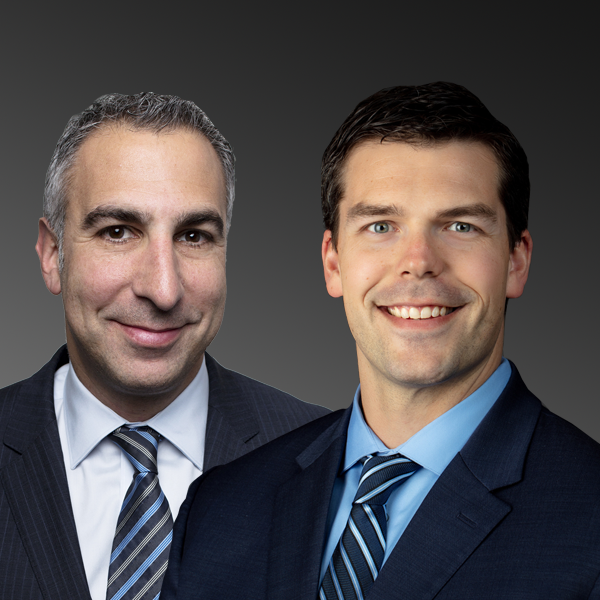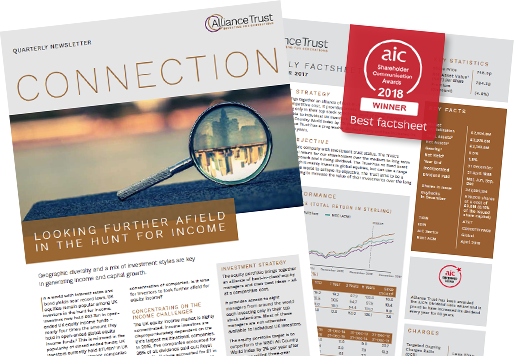Why long-term investors should take a genuinely diversified global approach
It’s not so long since most British investors focused their attention very much on the home market, channelling their cash into familiar brands, benefiting from the UK’s long-established dividend culture and avoiding the complications of foreign markets and exchange rate issues. As a starting (and admittedly pretty inexperienced) investor in the mid-1990s, I can remember feeling really quite sophisticated when I added a European- focused fund to my modest UK-centric portfolio.
Times have changed beyond recognition since then. Rapid globalisation, in tandem with innovation in stock market technology and the proliferation of open-ended funds and investment trusts with an international mandate, has pushed global portfolio-building into the mainstream for private investors.
But that development, of course, brings its own challenges – most obviously the question of how to allocate your pot not just between different assets but also between different regions, not to mention different investment styles, themes and sector focuses.
Regional equity asset allocation is arguably as daunting a prospect this year as it has ever been. Global macroeconomic disruption, courtesy of the continuing impact of Covid-19, is likely to continue indefinitely until a vaccine is found, while heightened geopolitical risks and market uncertainty remain in the shape of the US presidential elections, ongoing tensions between China and the US, and the increasing likelihood of a no-deal Brexit at the end of the year.
The outcome of the US election is a key factor for investors thinking about asset allocation, says Peter Kraus, chief executive of Aperture Investors. In line with other commentators, he predicts that “after the election, or longer if the election is disputed, the market will stabilise”. The level at which this happens will depend on the winner, how any dispute over the outcome is resolved, and the policies adopted by the next administration – but, he warns: “Portfolios should be constructed to withstand increasing volatility into November and investors should refrain from attempting to predict the market direction as it will be easy to get whipsawed under these conditions.”
The election outcome will also likely have a bearing on the level of aggressive posturing between the US and China: if Trump wins it is likely to be dialled up, whereas Democratic candidate Joe Biden is less antagonistic. But the fact remains that China’s ambitions as a global superpower are almost bound to create further regional frictions.
Meanwhile, the UK government’s hard-nosed approach to trade deal negotiations with the European Union could well result in a hard Brexit and further huge difficulties for both British and European businesses already stretched to breaking point by the economic fallout of the pandemic.
In other words, this is really not the time to start betting on the relative merits of particular parts of the world. Indeed, it’s arguably a challenging undertaking for individual investors at the best of times, according to Russ Mould, investment director at AJ Bell. “Second-guessing stock markets on the basis of near-term trends in macroeconomic data is usually the road to ruin, so that is one approach that should really be avoided,” he says.
Moira O’Neill, head of personal finance at broker interactive investor, explains some of the inherent dangers. “While many investors like keeping up with different markets around the world and finding regions that look good value, it can be risky. There are local currencies and politics to negotiate, and smaller economies can be more volatile. You can negotiate these risks using specialist regional funds, but there’s always the dilemma as to how much to allocate. Investors without the time to monitor the different economies around the world may struggle to make these decisions.”
So how then should investors approach the business of asset allocation? One simple option is to make use of a globally diversified fund or trust that acts effectively as a one-stop shop for international exposure.
Bear in mind that not all global funds operate in the same way. Some take into account changing regional strengths or weaknesses, adjusting the proportions they allocate to different areas over time. Ryan Hughes of AJ Bell suggest as an example Bankers Investment Trust: “The manager’s approach is very much about adjusting the asset allocation on a top-down basis to match how he sees the world,” he explains. “In the fund space, a fund like Schroders Global Equity combines both a top-down view and bottom-up approach.”
The majority of funds and trusts, however, focus specifically on the quality of individual stocks and largely disregard asset allocation on the basis of macroeconomic factors. Hughes explain that this reflects the fact that they tend to use the MSCI World index as a benchmark, which “can make allocations pretty static” as they need to stay close to the benchmark split across regions.
This approach means the emphasis is very much on outperformance through individual stock selection. For example, Alliance Trust’s approach is to outsource chunks of the portfolio to nine highly regarded specialist managers with differing styles and approaches to asset management, and then leave each to choose their own concentrated line-up of less than 20 ‘best ideas’ from anywhere in the world. (The exception is a specialist emerging markets manager that can take a more diversified approach with its allocation because of the riskier nature of these markets.)
Willis Towers Watson’s role is then to tweak the weighting of each manager in the portfolio so as to ensure the overall weighting is not too far removed from that of the MSCI All Country World benchmark (which includes emerging as well as developed markets). That means the Trust takes no ‘high-conviction’ punt that, say, Europe will be the place to be in the coming year, but instead holds a representative selection of the best stocks (whether in terms of high growth, great value, superior quality or reliable income) that the region has to offer.
Such investments are a strong choice for beginner investors looking for a single fund that provides the requisite mix of global diversification and ‘best-in-class’ share choices (in contrast, incidentally, to global index tracker funds and ETFs, which are often recommended for new investors but simply track the fortunes of the main global stock markets).
O’Neill adds: “A globally diversified fund or trust may work for you if you don’t have a lot of time to dedicate to investing, or if you just want to check up on it a few times a year. It will also be useful if you want global exposure to markets but don’t know how much to allocate to the regions – the fund managers will do this for you.”
Even for more committed investors with established portfolios, a global fund can be a useful addition. Investors can then extend their portfolio with smaller ‘satellite’ holdings in more focused funds that they think have potential to outperform. These might be regional, thematic, or focused on a particular industry sector such as biotechnology or financials.
As Mould observes: “No matter how good your research and strong your convictions, you can still be blown off course by an unexpected development or a wrong call. None of us has a crystal ball, after all, so a diversified fund can help guard against losses and overconfidence, while still offering upside potential.”
Global generalist investment trusts have an important additional attraction as core holdings, which is that their large size means they can pass on economies of scale to shareholders in the form of relatively low fees. The annual charge for Alliance Trust, for instance, is less than 0.65%. Apparently insignificant savings on fees can make a big difference in the long term, says O’Neill: “Even small differences in charges can add up to thousands of pounds over a 30-year investment period, so you need to take costs seriously. You can’t predict global markets and you can’t always rely on a professional fund manager’s track record, but the power of compounding is an exact science and it’s proven that cutting costs today will reap rewards in future.”
Of course, there are engaged investors who want to manage their own asset allocation using individual funds, and have the time, understanding and commitment to do a thorough job. The good news is that they don’t have to start from scratch, as online brokers typically whittle down the thousands of funds and investment trusts available to provide shortlists of high-quality choices, or even suggest model portfolios to follow or use as a starting point.
These ‘buy lists’ have come in for considerable criticism in recent years, and brokers have tightened up their acts as a consequence; but it’s important nonetheless that if you make use of these suggestions, you view them only as a jumping-off point for further research to ensure they will meet your requirements and fit well with other holdings in your portfolio.
In the meantime, if you don’t have the staying power or confidence to build a properly diversified portfolio from scratch, or you decide that maybe you’d rather just leave it all to the experts in these difficult days, remember there are one-stop shop options out there that are well equipped to take the strain.






